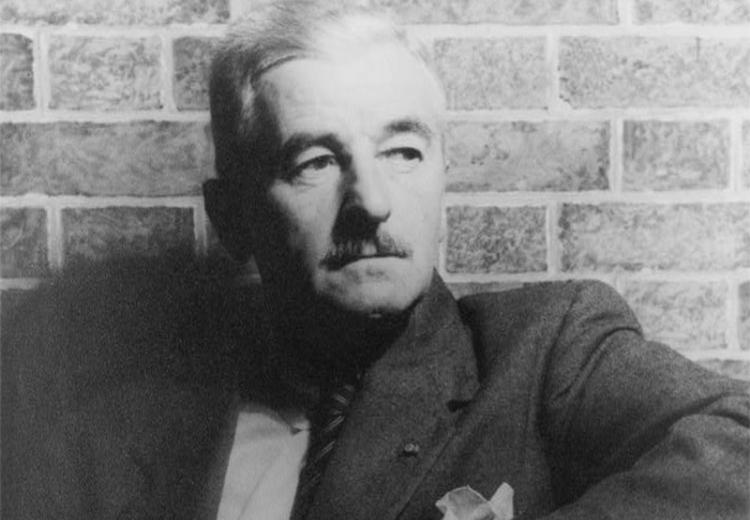Lesson 2: Faulkner's The Sound and the Fury: Benjy's Sense of Time and Narrative Voice

Portrait of William Faulkner by Carl Van Vechten.
Tomorrow, and tomorrow, and tomorrow
Creeps in this petty pace from day to day,
To the last syllable of recorded time,
And all our yesterdays have lighted fools
The way to dusty death. Out, out, brief candle!
Life's just a waking shadow, a poor player
That struts and frets his hour upon the stage
And then is heard no more: it is a tale
Told by an idiot, full of sound and fury,
Signifying nothing.
—Macbeth V.v.
In Carolyn Denard's essay "The Long, High Gaze: The Mythical Consciousness of Toni Morrison and William Faulkner," she notes that Faulkner often gave
"...voice to the 'discredited' within the South - the alienated, the insane, the idiosyncratic - Ike, Benjy, Darl. These nationally and locally discredited get Faulkner's gaze… He does not simply praise these characters—the gaze is not applause; it is a sincere, lingering consideration of their place in the universe—how they fail and how they triumph, but always how they matter."
-(Kolmerten 22)
In the first chapter of William Faulkner's emotionally charged novel, The Sound and the Fury, Benjy Compson, the son with intellectual disability who narrates this section, matters in a most profound sense. It is through his voice—childlike, detached, and often disorienting—that readers are confronted with the reality of time as a recurring motif and how time affects and informs human experiences. It is through Benjy's voice and acute sense of order that readers are able to ascertain the nature of the Compson family decline, as we work to make meaning of a tale told by an individual for whom time as we know it is inconsequential. What does matter is Benjy's perception of order, sensation, and memory within the realm of present-day time. Benjy matters because in this novel, and in this first chapter, the reader is asked to grapple with questions of perception, history, and chronology.
Guiding Questions
How does William Faulkner portray time in the first chapter of "The Sound and the Fury?"
How does the use of time relate to the novel's form and content?
Learning Objectives
Explore Faulkner's unique writing style and understand the relationship of form to content.
Discuss the use of time in Benjy's section (chapter one) of "The Sound and the Fury."
